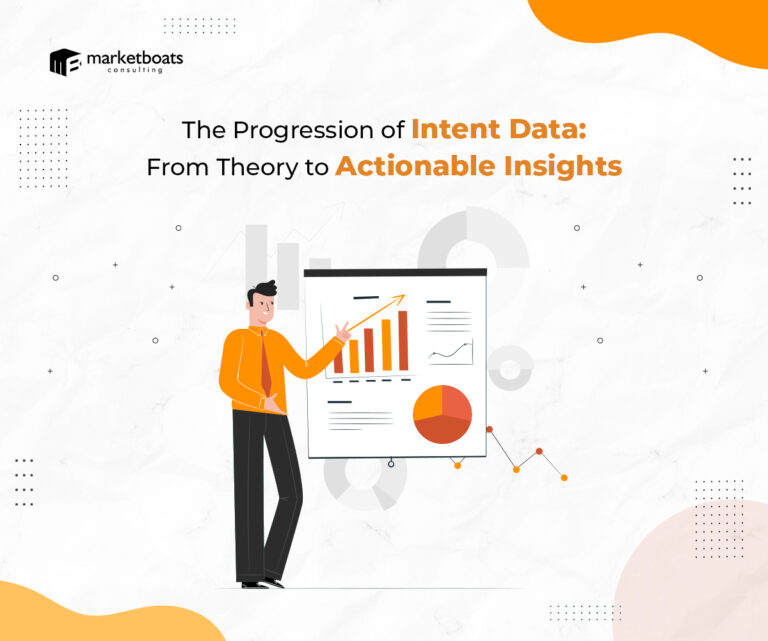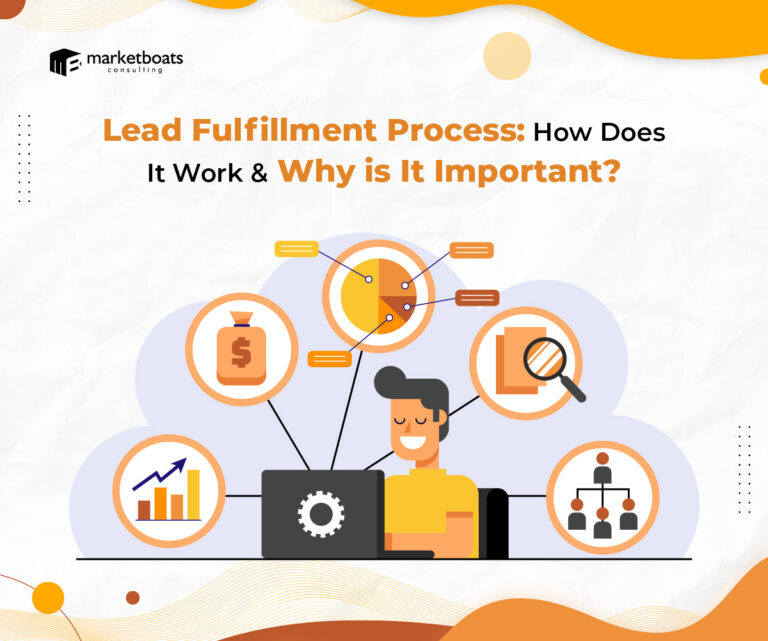Accessing and leveraging data to drive decisions has become essential to success in the modern business world. Leveraging the power of technology and expansive amounts of accessible information through effective collection, analysis, and usage allows businesses to gain an edge over competitors by confidently making informed decisions.
Why data-driven decision-making is important?
Recent statistics highlight the importance of data-driven decision-making, with McKinsey & Company finding that data-driven organizations are 23 times more likely to acquire customers, six times more likely to retain customers, and 19 times more likely to be profitable compared to companies that do not use data-driven insights.
Companies must be proactive in adopting decision support tools that draw from bigger data sets or risk getting left behind by competitors already leveraging cutting-edge analytics strategies to drive success and profitability.
Here’s how to set up a data-driven culture and the benefits of data-driven decision-making.
Data-Driven Marketing – How it Works!
Understanding data-driven customer relationships is key to lead nurturing and building lasting connections with clients. Companies can ensure their strategies are precise and effective for maximum results by focusing on these crucial aspects of a customer journey.
- Data Collection
Gathering data is an essential first step in any successful company’s journey. This includes internal and external sources such as webpages, social media channels, email campaigns, and enterprise systems – all of which can present their own unique challenges when it comes to managing and integrating the information collected.
- Data Analysis
The second stage of data processing focuses on analyzing the data to gain new insights and obtain a comprehensive understanding of the consumer. There are various methods of conducting analysis, with one of the most popular being the creation of customer clusters.
This involves reconstructing the customer journey for each individual, which can be done either by tracking their individual behaviors, actions, or master data or by analyzing buyer personas to identify different behavior profiles that customers can be associated with.
- Data Execution
The last phase of the data processing cycle involves activating the collected data, which is when the data is utilized to initiate communication, marketing, or sales initiatives. In this phase, customer data can be leveraged to establish rules that trigger specific actions on specific targets.
For instance, targeted communications can be sent to customers on their birthdays, an email can be triggered when the customer journey is potentially on standby, or specific content can be sent based on the context and stage of the customer journey.
Using predictive tools like algorithms and machine learning to analyze this collected information helps businesses identify different customer clusters, allowing them to customize their communication strategies towards specific segments more effectively. Finally, leveraging data-driven decision-making business can trigger appropriate actions in target customers so they can build meaningful connections over time through personalized experiences.
Reasons to Implement a Data-Driven Decision Making
The benefits of data-driven decision-making include:
- Helps identify the target audience: Leveraging data-driven decisions has become a must for businesses; understanding who your customers are and how best to reach them is key. With the right info, companies can tailor their strategies to effectively engage with target audiences and optimize marketing efforts to drive growth. By listening closely to analytics and insights, businesses can gain greater insight into what works – allowing them to stay ahead of the competition while increasing revenue opportunities.
- Continual organizational growth: Data is essential for decision-making, ensuring consistency and ongoing development. With data-driven decision-making, businesses can identify key insights from various aspects of their activity to inform action plans which will contribute to sustainable success in this competitive digital environment. Consistent execution yields measurable outcomes that enable a business to continue growing – the ultimate formula for achieving long-term goals today.
- Enhance knowledge and innovation: Leveraging data analytics can drastically help organizations identify areas of improvement, create more tailored strategies to meet customer needs, and grow with market trends. Marketers can also work towards fostering a culture that values experimentation and utilizing available insights when making decisions – ensuring their organization will remain agile in the ever-evolving landscape. As a result, they’ll be equipped to develop innovative solutions as demands shift, positioning them for success no matter what changes arise.
- Better content marketing: With data-driven decision-making, organizations can make their content marketing more effective than ever before. Businesses can create a tailored message that speaks to their audience’s desires by delving deep into customer behavior and preferences with analytics tools – leading to increased engagement and conversions. Additionally, this same data helps refine the delivery across various channels, such as social media and email, for maximum ROI on sales.
- Optimized marketing spend: Organizations can maximize their marketing budget by using data-driven decision-making to identify the most effective targeting, messaging, and ad campaign strategies. By analyzing customer behavior, preferences, and demographics – businesses can have greater insights into which channels deliver the highest return on investment. This leads to more optimized ad targeting and messaging while maintaining lower acquisition costs with higher conversion rates.
- Unlock new business ventures: Organizations can uncover possibilities that open the door to new business ventures by leveraging data-driven decision-making. Through analytics, they identify potential market gaps and create solutions tailored to emerging customer needs while carefully assessing risk against reward so resources are used as effectively as possible. With this tool at their fingertips, companies can confidently enter unfamiliar industries or expand into exciting new market opportunities.
- Unmatched adaptability: Data-driven decision-making in businesses allows marketers to stay ahead of the curve in a dynamic and ever-changing marketplace. Organizations can adapt their strategies to maximum success by leveraging real-time insights derived from data. This allows them to develop agile processes as well as an experimental mindset, enabling them to anticipate customer demands, preferences, and market trends ahead of time.
Data-Driven Decision-Making – Best Practices
Businesses should be sure to define clear objectives, prioritize data literacy among their staff, keep records organized and up-to-date with smart techniques, invest in relevant technologies for analysis purposes, and always strive for continuous improvement in B2B marketing.
With these practices firmly established within an organization’s operations, success can definitely unfold more quickly.
- Reduce biasness: Reducing bias in data-driven decision-making is crucial to ensure fair and effective outcomes. By choosing metrics carefully, ensuring data quality, using inclusive data sets, and monitoring results, leaders can help mitigate biases and improve the accuracy of their decision-making processes.
- Define objectives: Leaders should clearly articulate their goals and objectives, which will guide the selection of metrics, data collection, and analysis methods. Without clear objectives, data analysis can become unfocused and fail to provide meaningful insights. Defining objectives also helps ensure that decisions are aligned with the overall business strategy and can lead to more successful outcomes.
- Ensure data literacy: Data literacy is essential for effective data-driven decision-making. Leaders should ensure employees have the necessary skills to interpret, analyze, and communicate data insights. This can involve providing training and resources to enhance data literacy and promoting a culture of data-driven decision-making throughout the organization. Data-literate employees can contribute to more informed and effective decision-making, improving overall business performance.
- Maintain a clean and organized database: Maintaining a clean and organized database is critical for effective data-driven decision-making in business. Keeping data up-to-date and eliminating duplicate or irrelevant information helps ensure that analysis is accurate and reliable. A well-maintained database also allows for faster and more efficient data processing, reducing the risk of errors and improving speed.
- Make use of smart data: Using smart data, rather than just big data, is a best practice in data-driven decision-making. In order to make informed decisions, businesses need relevant and actionable data to analyze information efficiently and effectively. This approach can help avoid information overload and ensure data is used strategically to drive business outcomes.
- Invest in the right tools and technologies: Investing in the right tools and technologies is crucial for successful data-driven decision-making. Leaders should assess their data analysis needs and invest in tools that can effectively capture, store, and analyze data. The right technologies can help automate data processing, reduce errors, and provide real-time insights, improving decision-making speed and accuracy.
Data-Driven Decision-Making Case Studies
Here’s how two of the global megacorporations successfully reaped the benefits of data-driven decision-making:
- Amazon: Amazon, the e-commerce giant, has revolutionized data-driven decision-making in their industry. By collecting individual data about customers’ shopping preferences and utilizing behavioral analytics techniques to generate personalized product recommendations across touch points throughout the shoppers’ experience – from browsing products to check out – they have created a more efficient and engaging process as well as seen an increase in sales revenue along with it. For instance, someone purchasing a mobile phone on Amazon’s platform could receive recommendations for related items like cases via email after the purchase is complete.
- Netflix: Netflix found a way to stay ahead of the streaming industry game – data-driven decision-making. With over 128 million active users and more competition appearing daily, they studied behaviors such as watch time, location, types of shows/movies watched by the user, when content was paused or resumed, etc., using customer metrics to create an accurate recommendation algorithm. This led to 80% of customers following these tailored recommendations, significantly increasing their retention rates!
Summing Up
In today’s data-driven business environment, utilizing data-driven decision-making in B2B demand generation is crucial for success. Implementing best practices, such as defining clear objectives, ensuring data literacy, maintaining a clean and organized database, utilizing smart data, investing in the right tools and technologies, and reducing bias, allows businesses to improve outcomes and make better decisions.
Continuous evaluation and improvement are key to achieving maximum benefits from data-driven strategies. Businesses prioritizing data-driven decision-making will be better positioned to stay competitive and succeed in their markets.
Transform your marketing approach with Marketboats Consulting and unlock new opportunities for success.
Our multichannel content syndication platform provides effortless access to various outlets, allowing you to identify the best prospects for growth. Additionally, our innovative lead-generation techniques ensure that follow-up processes are streamlined, and brand recognition is maximized.
Don’t miss out on this chance to revolutionize your business!
Get in touch today!





